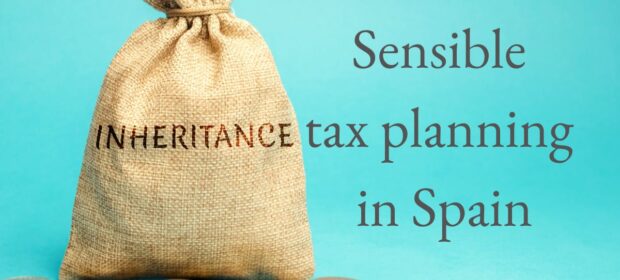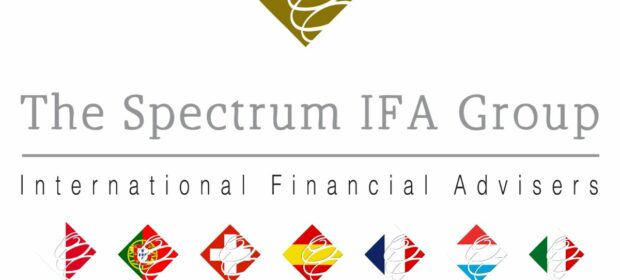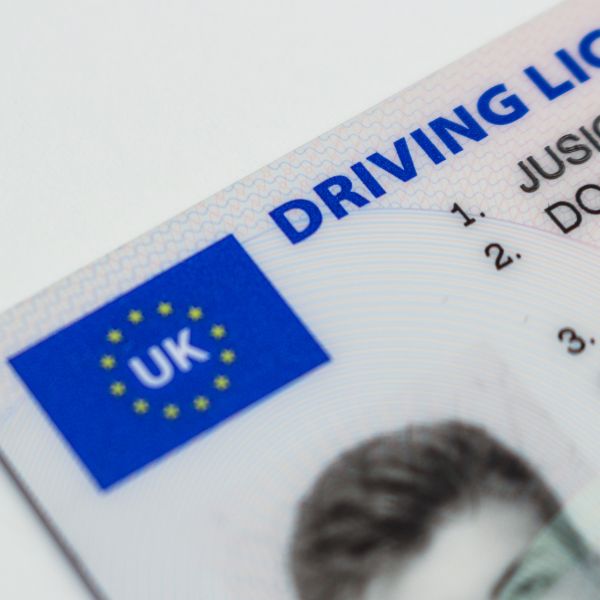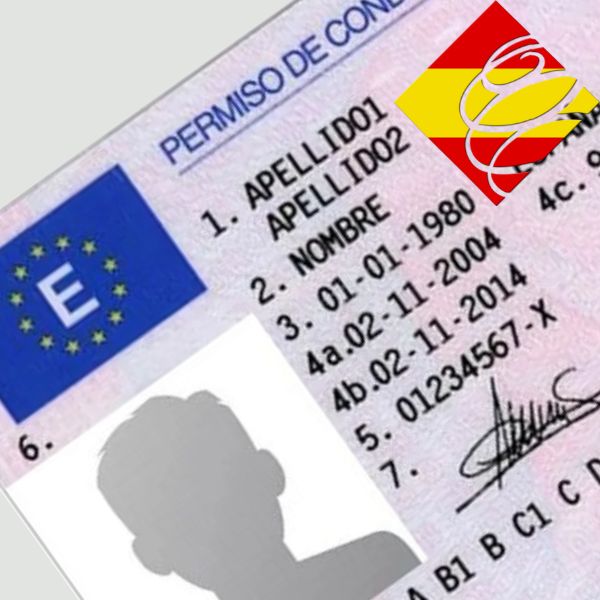Moving to Spain gives you more than just a better lifestyle — it offers a fresh perspective on what really matters.
For many expats, that means not only enjoying their wealth today, but ensuring it’s passed on efficiently to loved ones tomorrow.
By Matthew Green
This article is published on: 18th October 2025

Moving to Spain gives you more than just a better lifestyle — it offers a fresh perspective on what really matters.
For many expats, that means not only enjoying their wealth today, but ensuring it’s passed on efficiently to loved ones tomorrow.
But here’s the catch: Spain’s inheritance and gift tax system works very differently from what most expats are used to in their home countries. And without the right planning, your family could end up facing an unnecessary and unexpected tax bill.

In Spain, inheritance tax (Impuesto sobre Sucesiones y Donaciones) is paid by the beneficiary, not the estate.
That’s often the first surprise for newcomers — it’s your spouse, children, or other heirs who pay the tax, rather than your estate before distribution.
The amount payable depends on:
For example, Madrid currently offers one of the most generous regional allowances, with reductions of up to 99% for close family members. Valencia, on the other hand, provides smaller deductions — which can make a significant difference to your family’s eventual tax exposure.
The way you hold your assets determines how smoothly — and efficiently — they can be passed on. Investments in a Spanish tax-compliant bond can offer a number of key advantages when planning for succession:
In short, compliant structures help your heirs inherit assets that are clean, locally compliant and immediately accessible, without triggering unnecessary tax consequences.

Many expats unintentionally make things more complicated by:
These issues can create double taxation risks, delays or even cause assets to fall outside your heirs’ allowances. A simple review of your portfolio through the lens of Spanish succession law can often fix these risks before they become costly.
Effective planning is about more than saving tax — it’s about clarity and peace of mind. Knowing that your wealth will transfer smoothly and efficiently to the people you care about is one of the greatest gifts you can leave behind.
Whether your goal is to ensure your spouse is financially secure, or to pass on assets to your children in the most tax-efficient way possible, a little forward planning today can make all the difference tomorrow.
If you’ve chosen to make Spain your long-term home, your financial plan should reflect that. Local advice can help you align your investments, pensions, and estate planning with Spanish law — so your wealth stays protected across generations.
If you’re an expat living in Valencia, Madrid, or elsewhere in Spain, and you’d like to understand how to structure your assets for efficient inheritance and succession, I can help.
We’ll review your existing arrangements and identify ways to reduce potential inheritance tax exposure, simplify the transfer of assets, and ensure your loved ones are properly protected.
Get in touch for a no-obligation consultation to discuss your personal situation and learn how to build a clear, tax-efficient legacy plan for your family.
By Matthew Green
This article is published on: 16th October 2025

What Catches most Expats Off Guard
When you move to Spain, the dream is clear: sunshine, a slower pace, and more time to enjoy life. But for many expats, the reality of managing money here soon brings a new challenge — understanding how the Spanish tax system treats your investments.
In the UK or elsewhere, you might have built wealth using ISAs, premium bonds, or investment portfolios with little thought for cross-border implications. But once you become a tax resident in Spain, those same structures can start working against you rather than for you.

One of the biggest surprises for newcomers to Spain is that Spain taxes your worldwide income and gains — not just what’s earned here. That includes dividends, interest, and even growth within investment funds.
It’s easy to assume that investments left “back home” can be ignored, but in reality, the Spanish tax authorities (Hacienda) expect full reporting of your global assets.
These are the areas where I see expats run into problems most often:
Spain offers legitimate, tax-efficient investment structures designed specifically for residents. One of the most effective is the Spanish tax-compliant investment bond.
Here’s why so many expats in Valencia and Madrid are switching to these structures:
For example, if your investment grows 5% in a year and you take a small withdrawal, only a fraction of that amount is taxable – not the full sum. Compare that to a General Investment Account, where every sale or fund switch could trigger tax immediately.
The goal isn’t just to save tax — it’s to grow wealth sustainably, with peace of mind.
By using compliant structures, you can:
And when it comes to retirement planning or accessing your UK pension, having your investments structured correctly in Spain makes a world of difference to how much you actually keep.

Every expat’s situation is unique — from how income is generated, to where assets are held, to whether a move is permanent or temporary.
That’s why getting regulated local advice matters.
The Spanish system can be generous when you plan properly – but unforgiving if you don’t.
So before you make any investment or draw from your pension, take a moment to review your setup. The right structure today can save you thousands over the years ahead, and keep your finances aligned with the lifestyle you came here to enjoy.
Spain rewards those who plan ahead. Take the time to understand your options, and you can enjoy the life you moved here for – without letting unnecessary taxes eat into what you’ve built.
If any of this resonates with your situation, the best next step is a conversation.
Matthew Green is a UK-qualified financial adviser based in Spain, working with British and international expats across Valencia, Madrid, and the wider Costa Blanca region.
He is a member of The Spectrum IFA Group — one of Europe’s leading independent financial advisory firms for expatriates — and is regulated to provide cross-border financial advice.
Matthew’s approach is straightforward: understand your life first, then build a plan around it. No jargon, no pressure, no one-size-fits-all solutions.
It starts with a conversation — usually 20 to 30 minutes. There’s no preparation needed on your part. We’ll talk about your situation, what’s on your mind, and whether there are areas where I can help.
There’s no cost, no obligation, and no pressure. The goal is simply to give you a clearer picture of where you stand.
By Spectrum IFA
This article is published on: 14th October 2025

At The Spectrum IFA Group, our success has always relied on our people, their expertise, dedication, and a shared belief in doing what is best for our clients. As a firm founded on trust, transparency and building long-term relationships, we recognise that sustainable growth depends not only on sound financial advice but also a solid grounding in joint ownership and responsibility.
Since its inception, Spectrum has aspired to share company ownership with its advisers and staff. Establishing a clear succession plan is essential, not only to ensure business continuity but also to provide long-term security for our advisers, employees, and most importantly, our clients.
Today, Spectrum’s advisers and staff collectively hold over 15% of the company’s share capital. This initiative reflects our belief that those who contribute daily to looking after our clients’ interests should also participate in the company’s growth. In 2026, Spectrum plans to increase employee and adviser equity participation to approximately 30%. Our longer-term intention is for advisers and employees to own 48% of the business, with the remaining 52% retained by the founders.
This approach demonstrates our commitment to creating a resilient, people-focused organisation where everyone has a vested interest in delivering exceptional advice and service. By aligning ownership with those who directly support our clients, we are securing our longevity whilst embedding the long-term continuity of relationships that help define our unrivalled service standards.
At Spectrum, we view this as more than simply an exercise in restructuring company ownership – it reflects of our core values. We are building an organisation that empowers people, rewards dedication, and safeguards the future security of our clients, advisers, and employees alike. Together, we are shaping a stronger, more sustainable Spectrum team for generations to come.
By Chris Burke
This article is published on: 13th October 2025

Regular saving & investing for Expats in Spain: A New Way to Build Your Future Wealth
For many of my clients here in Catalonia and across Spain, their wealth is locked away in their home/property. It’s a comforting form of security, however most people understand the need to make their surplus money and savings work for them —as the years are passing and the need to plan for future expenses and retirement are becoming ever more important.
But here’s the challenge:
If you live in Spain, your options for tax-efficient long-term saving are extremely limited — unlike in the UK, where private pensions allow contributions of up to £60,000 per year with valuable tax relief.
So, what can you do if:
Until recently, the answer wasn’t encouraging. Most products available locally offered poor returns, high fees, and were designed to benefit the banks or institutions more than the investor.
That’s changed.
Today, we have a cost-efficient investment strategy that allows our clients to start with a modest initial amount and then add to it monthly — a plan that truly works in your favour.
Here’s why it’s such a powerful approach and can increase your wealth allowing your money to pay for future life goals:

1. Compounding Growth: Your Money ‘Making’ Money
When you invest regularly, your returns begin to generate returns — that’s the magic of compound interest.
For example:
Timeframe: 10 years
At the end of that period, your total balance could exceed €254,850.
The rule of 72 is a handy guide here: divide 72 by your annual return (72 ÷ 6 = 12 years), and you’ll see how long it takes to double your money. The longer you invest, the more powerful compounding becomes.

2. Smoothing Out Market Volatility (Dollar/Euro-Cost Averaging)
By investing a fixed amount every month, you buy more when prices are low and fewer when they’re high — automatically reducing your risk.
This strategy, known as dollar/euro-cost averaging, helps take the emotion out of investing and smooths out short-term market swings.
Over time, it leads to a lower average cost per unit and more stable growth.

3. Time in the Market Beats Timing the Market
Even professional investors can’t consistently predict when to buy or sell.
What matters most is staying invested — because missing just a few of the market’s best days can dramatically impact your long-term returns.
A disciplined monthly investment keeps you in the game and lets you capture long-term market growth without the stress of guessing when to act.

4. Builds a Strong Saving Habit
Treat your monthly investment like a bill — a payment to your future self.
This simple mindset creates powerful financial discipline and ensures you’re always moving closer to your goals, even when life gets hectic.

5. Your Money Working Harder — and Smarter
Regular investing means your money is always working for you.
Through dividends, interest, and capital growth, your returns compound over time — accelerating your wealth creation.

6. Protecting Your Wealth Against Inflation
Cash sitting in a bank account is losing value every year due to inflation.
Investing in assets such as stocks, bonds, or diversified funds gives your money a real chance to outpace inflation and grow in real terms.

7. Building Financial Independence
Consistent, long-term investing helps you create assets that generate income and give you freedom.
Whether your goal is a secure retirement, helping your children with education, or achieving financial independence, this strategy is designed to get you there — steadily and confidently.
You don’t need a fortune to start — just commitment, consistency, and a smart structure.
Our investment strategy gives you the flexibility to start small, save a sizeable monthly disposable amount, and build meaningful wealth over time — without the high costs or complexity of traditional financial products.
If you’re an expat in Spain ready to make your money work harder for your future, now is the time to act.
Ready to see how this could work for you?
Get in touch for a confidential, no-obligation conversation about building your financial future in Spain – NOTE, a minimum saving amount of €1,000 per month applies.
If you would like to have an initial consultation to explore your personal situation, you can do so here.
Click here to read independent reviews on Chris and his advice.
By Chris Burke
This article is published on: 9th October 2025

How expats in Barcelona/Spain can save, invest, reduce future taxes and build wealth smartly
Barcelona/Spain continues to attract top international talent — entrepreneurs, digital professionals, and executives who want to enjoy life in one of Europe’s most vibrant cities while advancing their careers. But moving to Spain comes with financial questions:
How can you structure your income efficiently, save for the future, and make your money work harder for you?
Enter the Beckham Law — a powerful tax regime that, when used strategically, can form the foundation for long-term wealth building.

Originally introduced in 2005 (and famously used by David Beckham during his time at Real Madrid), the Beckham Law — officially known as the Special Expat Tax Regime — allows qualifying foreign workers in Spain to be taxed as non-residents for a period of up to six years.
That means:
For professionals relocating to Barcelona/Spain, that’s a huge opportunity.
It provides a window of time to optimise your finances, save aggressively, and invest smartly before you transition into the standard Spanish tax system/move elsewhere.

While the Beckham Law provides tax advantages on income, the options for medium/long-term saving and investing in Spain are limited — especially compared to the UK or other countries with flexible private pension systems.
Spanish banks are generally perceived to offer higher-cost products and traditional pension plans have minimal contribution and tax advantages.
So, what can you do if you want to make the most of your time under the Beckham regime and then very importantly make sure you are highly tax efficient for when it ends and you either stay in Spain or leave?

This is where smart financial planning makes all the difference.
I help clients in Barcelona/Spain build international investment structures that are:
This approach allows you to save regularly and grow your capital while enjoying the tax benefits available to you during your time in Spain.

You don’t need to start with a fortune — consistency is what counts.
Here’s a simple example of what steady investing can achieve:
At the end of that period, you could have over €254,850 — thanks to the power of compound growth. Regular saving smooths out market volatility, creates financial discipline, and puts time on your side.
The Beckham Law is temporary — and the clock starts ticking the day you qualify.
The earlier you begin saving and investing during your residency, the more you can take advantage of the reduced tax burden and compounding returns.
Once your six-year window closes, your tax position changes — so using that time effectively can make a massive difference to your long-term wealth.

If you’re an international professional living or working in Barcelona, your financial situation is unique — and it deserves a tailored plan.
With the right structure in place, you can:
When on the Beckham Law you have almost a ‘once in a lifetime’ opportunity to get financially organised, reduce future taxes and mitigate/eradicate profits on current gains, potentially increase wealth substantially and set yourself up for the rest of your life financially – You just need the right advice, financial partner and strategy to help you do this, someone with years of experience helping clients achieve this.
Ready to make the most of your time under the Beckham regime?
I help expats in Spain take control of their finances — with transparent advice, efficient investment strategies, and a long-term view of wealth creation.
By Matthew Green
This article is published on: 4th October 2025

If you’re planning to drive in Spain as an expat, there are a few important things to know before hitting the road. From converting your license to understanding local rules, here’s a complete guide to make the process easier.


You’ll need:
Appointments are booked through the DGT website (Spain’s traffic authority).

If you bring your own car from abroad, you’ll need to register it in Spain and pay the relevant taxes. This can be complex—many expats hire a gestor to handle the process.
Sorting out your driving documents is just one part of settling in Spain. Managing taxes, pensions, and investments under Spanish rules is another big step—and getting it right early can save you stress and money later.
As a financial planner with The Spectrum IFA Group here in Valencia, I help expats like you plan smart so you can enjoy life without financial worries.
If you’d like a free, no-obligation chat about setting up your finances for life in Spain, feel free to get in touch. It’s all about making sure you can enjoy everything Valencia has to offer—without financial stress.
By Matthew Green
This article is published on: 29th September 2025

How to Budget for Your New Life
Valencia is one of Spain’s most attractive destinations for expats—and for good reason. With its stunning beaches, vibrant culture, and affordable lifestyle compared to other European cities, it’s no wonder so many people choose to call it home. But before you pack your bags, it’s important to understand what life in Valencia really costs and how to plan your budget.

Accommodation is likely to be your biggest monthly expense. Valencia offers a wide range of housing options, from modern apartments in the city center to charming villas on the outskirts.
Tip: Factor in community fees (for building maintenance), property taxes, and if renting, a deposit (usually one or two months’ rent).

Spain is famous for its food culture, and Valencia doesn’t disappoint. From traditional paella to modern tapas bars, eating out can be surprisingly affordable compared to Northern Europe or the US.
Entertainment such as cinema tickets, concerts, and cultural events are also reasonably priced – expect €8–€10 for a movie ticket.

If you have children, education will be a key factor in your budget.
Transport is another area where Valencia shines:

Many new arrivals forget to budget for these:
Valencia offers a fantastic quality of life at a relatively affordable price, but like any move, planning ahead is key. Create a realistic budget, understand where your biggest costs will be, and allow some flexibility for the unexpected.
As a financial planner with The Spectrum IFA Group here in Valencia, I help expats like you plan smart so you can enjoy life without financial stress.
If you’d like a free, no-obligation chat about setting up your finances for life in Spain, feel free to get in touch. It’s all about making sure you can enjoy everything Valencia has to offer—without financial stress.
By Matthew Green
This article is published on: 19th September 2025

If you are a parent in Valencia and are concerned about how to meet the rising cost of private education, you are not alone. Many families are looking for smarter, more tax-efficient ways to cover these expenses without depleting their hard-earned savings.
At The Spectrum IFA Group, we help clients create investment strategies that can provide reliable income streams for school fees — while protecting wealth for the future.
Mr and Mrs García live in Valencia and, like many families, are planning for the cost of private education for their children. With nursery fees averaging around €800 per month and secondary school fees closer to €960 per month, they wanted to ensure that they could cover these costs in a sustainable and tax-efficient way.
After speaking with their adviser at The Spectrum IFA Group, they looked at how best to structure their savings to provide the required income without eroding their long-term capital.
The Garcías had €250,000 available, which they invested into a tax-efficient bond. With an assumed long-term growth rate of around 5% per year, they were able to withdraw approximately €12,500 annually (about €1,040 per month).
This income stream was enough to cover the monthly school fees, while keeping the original capital invested and growing over the years.

In Spain, life assurance bonds are particularly attractive because of their favourable tax treatment. Only the gain portion of each withdrawal is taxable, making the early years especially efficient.
This structure meant the Garcías could cover school fees with minimal tax drag and without dipping into their capital base.
By using investment growth to fund school fees, the family maintained:
As with any financial plan, regular reviews with their Spectrum adviser ensure the investment stays on track, adapting to changes in fee levels, market conditions, or family circumstances.
Summary: By structuring their savings intelligently, families in Valencia can meet the challenge of private school fees while preserving wealth for the future.
If you would like to explore how your savings and investments can be structured to provide for school fees — or other future goals — in a tax-efficient way, speak to The Spectrum IFA Group. A personal consultation will give you peace of mind that your plan is sustainable and tailored to your family’s needs.
By Matthew Green
This article is published on: 15th September 2025

So you’ve made the move to Valencia—or you’re planning to. Now comes the fun part: exploring everything this beautiful city and region have to offer. Sure, you’ve heard of paella and the beach, but Valencia has so many hidden gems and local traditions that make life here truly special.
Here are some must-do experiences for newcomers that will help you fall in love with your new home.

Valencia knows how to celebrate, and no event is bigger than Las Fallas in March. For two weeks, the city turns into an open-air art gallery filled with giant sculptures, fireworks every day (mascletàs), and all-night street parties. It’s loud, colorful, and unforgettable.
If you’re feeling adventurous, take a day trip to La Tomatina in Buñol—a world-famous tomato-throwing festival held in August. Wear old clothes!
Just 20 minutes from the city, Albufera is a serene lake surrounded by rice fields—the birthplace of paella. Take a boat ride at sunset, watch the birds, and finish with a traditional paella in the village of El Palmar. This is Valencia at its most authentic.

Need a break from the city? Head inland to Montanejos, a stunning mountain village known for its thermal springs and turquoise river pools.
Perfect for hiking, swimming, and soaking up nature.
Everyone knows about Malvarrosa Beach, but if you want something quieter, try Playa de la Patacona or head to El Saler, south of the city, for natural sand dunes and crystal-clear water.

Skip the tourist traps on the beach and head to local favorites in El Palmar or the Ruzafa neighborhood.
Remember: paella is a lunch dish, not dinner. And yes, the real one has rabbit and chicken—not seafood.
Valencians love their coffee breaks. Find a sunny terrace, order a café con leche, and watch the world go by. Try horchata too—a sweet, milky drink made from tiger nuts, served ice cold with fartons (pastry).

The old riverbed of the Turia is now a 9 km green park running through the city.
Rent a bike, take a picnic, or just stroll past gardens, playgrounds, and the futuristic City of Arts and Sciences.
This grand market is one of the largest in Europe and a feast for the senses—fresh produce, seafood, and local delicacies. Go early in the morning for the best experience.(pastry).
Want to improve your Spanish and make friends? Valencia has dozens of language exchange meetups where locals and expats come together for conversation. Great for breaking out of the expat bubble.

From the orange groves of Xàtiva to the beaches of Cullera and the historic charm of Peñíscola, there’s so much to see just an hour away.
Valencia is full of amazing experiences—but while you’re discovering its culture, don’t forget about your financial future here in Spain. Things like tax planning, pensions, and investments work differently, and the right structure can make a big difference.
As a financial planner with The Spectrum IFA Group here in Valencia, I help expats like you plan smart so you can enjoy life without financial stress.
If you’d like a free, no-obligation chat about setting up your finances for life in Spain, feel free to get in touch. It’s all about making sure you can enjoy everything Valencia has to offer—without financial stress.
By Tom Worthington
This article is published on: 12th September 2025

Setting the stage: Brussels wants homework in October
While the UK plays calendar Enie Meenie minie mo with Spring/Autumn Budgets (and the occasional “surprise!” emergency one), the EU prefers punctuality. Every October, member states hand in their budgets like model students. In 2024, everyone also had to submit a four-year plan to steer national debt toward (or below) 60% of GDP—the EU’s collective happy place.
Spain, after a domestically bumpy 2024 (Reuters politely called the 2024 draft “discontinued,” which is the fiscal equivalent of “we meant to do that”), pivoted to 2025—and got Brussels’ nod in late November for a longer seven-year clean-up plan under the rebooted EU fiscal rules. Translation: fewer vibes, more spreadsheets.
What actually changed (a.k.a. the “please don’t shoot the messenger” bit)
Goodbye, tax holidays
Net result: monthly bills did the opposite of “Mediterranean chill.”
Nine new tax rises for 2025
Congress kicked off the 2025 tax year with nine approved increases, targeting roughly €4.5bn/year in extra revenue. Among the eyebrow-raisers:
1. “Bank Tax”: A progressive levy on net interest margin + commissions earned in Spain (roughly 1% to 7%).
2. Savings Income Tax: For incomes over €300,000, the top rate rises from 28% to 30%.
*Yes, this can touch insurance policy withdrawals and other taxable gains—mainly relevant for the well-heeled.
Business translation: banks are the piñata; high-net-worth savers bring an extra 2% candle to the tax cake.

Property:
The spicy bit everyone is arguing about…
Regional Property Transfer Tax still varies (hello, Valencia at 10% for buyers, residents and non-residents alike).
But the big headline: reports that Spain is considering a tax of up to 100% on properties bought by non-EU residents (yes, that includes the UK and US).
Important fine print: This is about plans and proposals being discussed, not a done deal. If you’re a non-EU buyer, keep your lawyer on speed-dial and your pulse steady.
Wealth & Solidarity: the sequel nobody asked for (but everyone pays attention to)
Spain has long had Wealth Tax for residents with net wealth ≥ €700,000, but regions can—and did—play with allowances. Madrid and Andalucía famously went full 100% relief.
Cue the central government’s 2022 plot twist: a “temporary” Solidarity Tax layered on top, using Wealth Tax rules as the base. Exemptions broadly still apply (primary home up to €300,000, business assets when it’s your main activity, and qualifying shareholdings >5%—or >20% family-owned). After exemptions, Solidarity hits at:
Also remember: non-residents can face Wealth Tax on Spanish-sited assets. Double Tax Treaties may soften the edges—but bring a professional to the knife fight.

The surprisingly cheerful chapter:
Inheritance tax (mostly) retires to the beach
Spain’s regions have been trimming Succession Tax like a minimalist Marie Kondoing their wardrobes:
Estate-planning translation: check your postcode—it matters more than your zodiac sign.
Who should care (and why)

Jargon-buster (with tapas)
Practical checklist (so you can look clever on Monday)
Conclusion
Spain’s 2025 plan blends EU-approved fiscal discipline with domestic social aims—and a dash of headline-grabbing housing policy.
For investors and families alike, the theme is simple: location matters, timing matters, and reading the footnotes definitely matters.